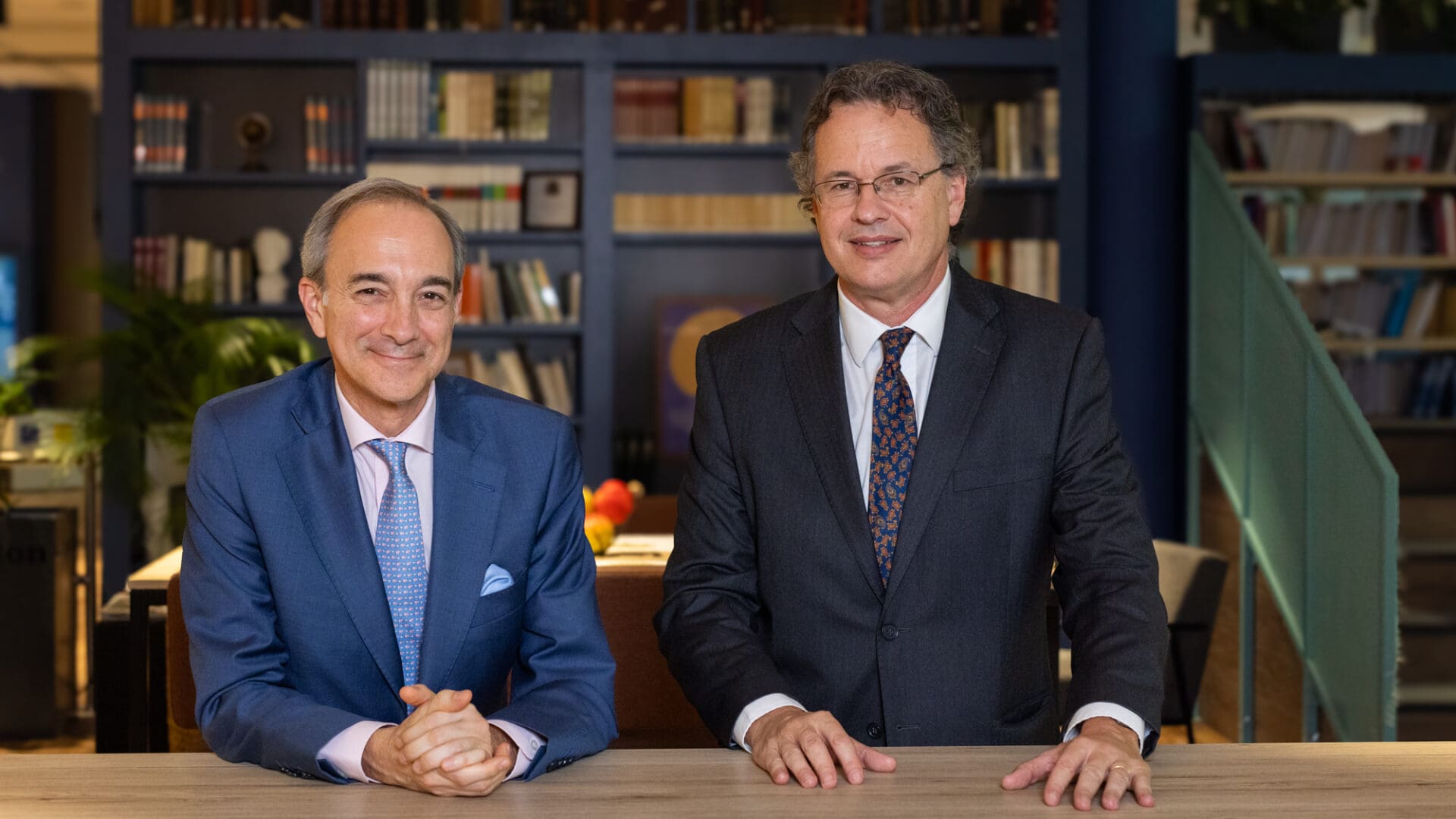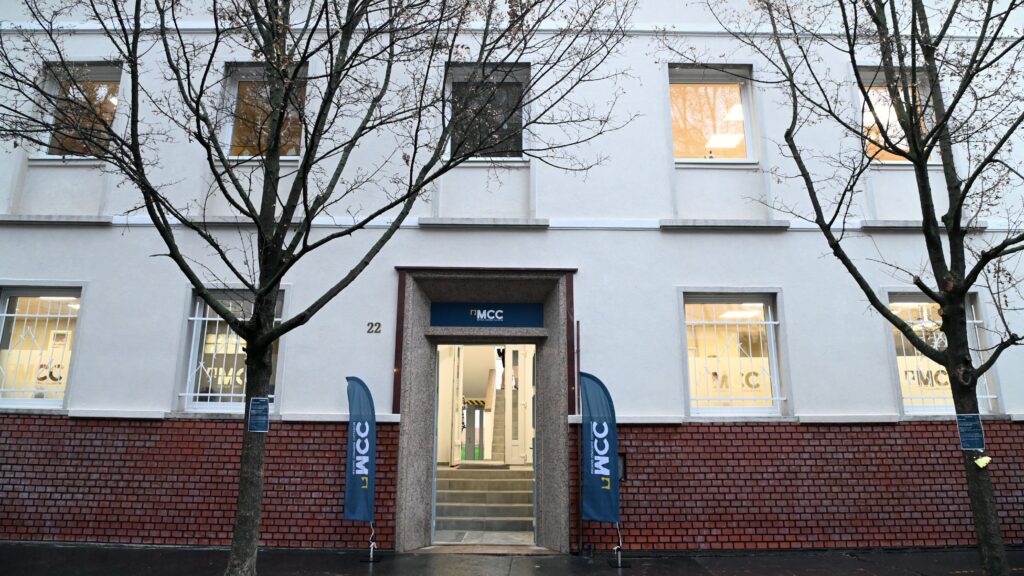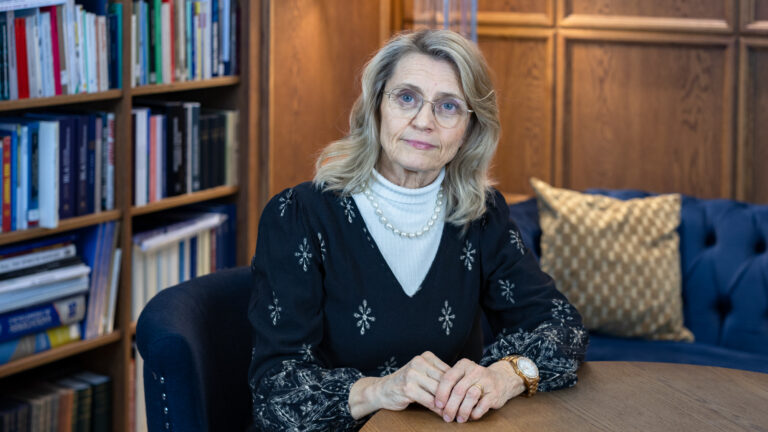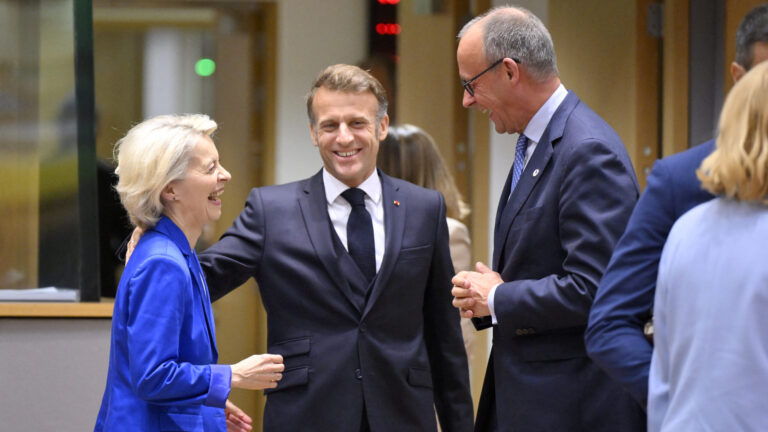Carlos Horacio Torrendell has been serving as the Secretary of Education of the Argentine Republic since 10 December 2023. Appointed by President Javier Milei, he works under the Ministry of Human Capital, led by Minister Sandra Pettovello. Mr Torrendell holds a bachelor’s degree in Education Sciences from the Pontifical Catholic University of Argentina (UCA). He also earned a doctorate in Education Sciences from the Pontifical Catholic University of Chile and obtained a qualification as a specialist in Education from the University of San Andrés. Throughout his academic career he has taught in various pedagogy-related programmes at these institutions.
***
A special thanks goes to Carlos Hoevel, Professor of History of Economic and Political Ideas, Business Ethics, and Philosophy of Economics at the Catholic University of Argentina in Buenos Aires, for his invaluable assistance and professionalism in overcoming language barriers during this interview.
Mr Torrendell, what brings you to Budapest?
In December 2023 Prime Minister Viktor Orbán attended President Milei’s inauguration in Buenos Aires. On the morning of the inauguration I received an unexpected invitation to meet with PM Orbán and other dignitaries. It was the first time I encountered a politician with a clear vision of cultural policy grounded in humanistic and Christian values. His vision was not only theoretical but also practical and actionable. My colleague and friend, Carlos, had come here earlier in March for an education conference, and now, we are together, conducting interviews to understand the current developments. We have met with various authorities and key figures who explained the situation in Hungary. This experience has provided us with valuable lessons that we can apply to our government in Argentina.
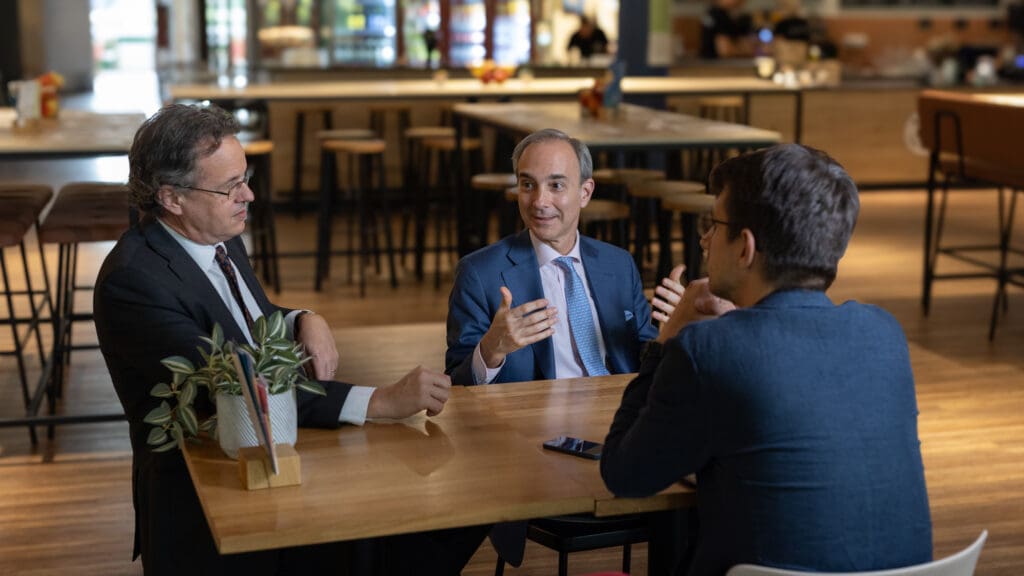
Could you provide us with some background on Argentina’s political landscape leading up to the elections?
Argentina has undergone a unique process, distinct from both the rest of the world and Latin America. Fifty years ago, our poverty rate was around 10 per cent or lower; today, half of our population lives in poverty. This rapid decline is unusual, as the wealthy have become impoverished in a short span. Under recent populist Leftist government, this continuous decay led the majority to realize the need for change.
In response to these ongoing crises caused by leftist policies, Javier Milei emerged with a new proposal combining conservative views on some issues with an open, free market economy.
Long story short: in recent years, we experienced a deepening of radical progressivism and economic mismanagement. Now, we are at the beginning of a long process of change.
Your response highlighted the economic aspects of the crisis you aim to address in the coming years. However, let’s shift the focus to culture. Some argue that the radical Left is targeting the minds of the youth through its appealing presence in popular culture on platforms like Disney+ and Netflix. As the Secretary of Education, do you feel a sense of responsibility in this regard? Do you have a strategy to counteract this phenomenon?
In a federal state like Argentina, where provinces govern their own schools, the Secretary of Education at the central level establishes the general rules of the system. While we do not directly govern communication aspects and networks such as social media, we envision greater societal involvement in education, not just the state’s. We aim to promote and support families, particularly parents, to play a more significant role in determining the content available to children. Parents should be more involved in education and school communities, particularly concerning literacy, instruction, and fundamental education, as well as in the formation of values. Education should not be left solely in the hands of teachers and bureaucrats.
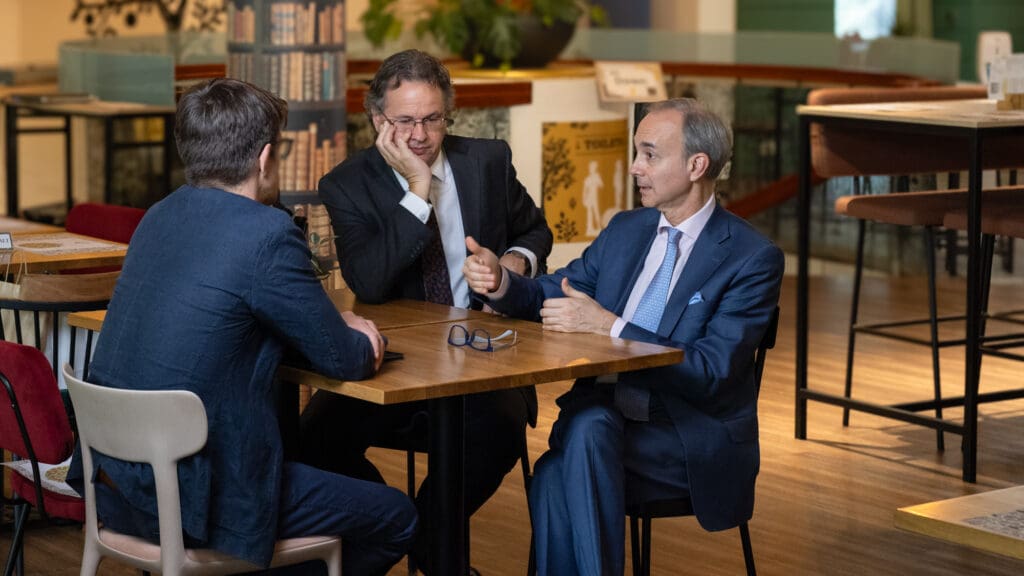
Regarding your strategy, in an interview with La Nación at the time of the inauguration of the new government, you mentioned that your approach is not to increase the budget but to use the current budget more effectively. How do you plan to bring about change in such challenging circumstances in a federal state like Argentina?
There are two possible strategies for achieving this. The first strategy involves utilizing national resources, as a portion of the educational budget is allocated at the national level. We can distribute these resources intelligently, based on the performance and outcomes of local provinces, rather than simply allocating funds without oversight. This approach aligns with policies being developed in other Latin American countries, such as Brazil. The paradigm has shifted from merely distributing funds without evaluating results to a new model that considers statistics, data, and evaluation outcomes. This model emphasizes continuous review of how the money is used.
How about the second strategy?
The aim is to strengthen the capabilities of each of Argentina’s 24 provincial governments using the same method. While some provinces resist these changes, others are more receptive. The idea is for provinces to learn from one another, with penalties and charges applied to those that are reluctant. The goal is to ensure that all provinces learn to use resources intelligently and effectively.
Did the radical Left have the opportunity to influence youth through the educational system before?
President Milei won the election with 56 per cent of the votes, with significant support from the youth. In Argentina, voting is optional at 16 and compulsory at 18. This rule was introduced by the Left, assuming that younger voters would support them. However, this did not turn out as expected.
While there is a prevalent leftist influence in education, Argentina’s rich cultural traditions played a role in counteracting this strategy.
The challenge now is to create a more pluralistic and free educational environment. Previously dominated by leftist ideology, the aim is to introduce pluralism and diversity of thought.
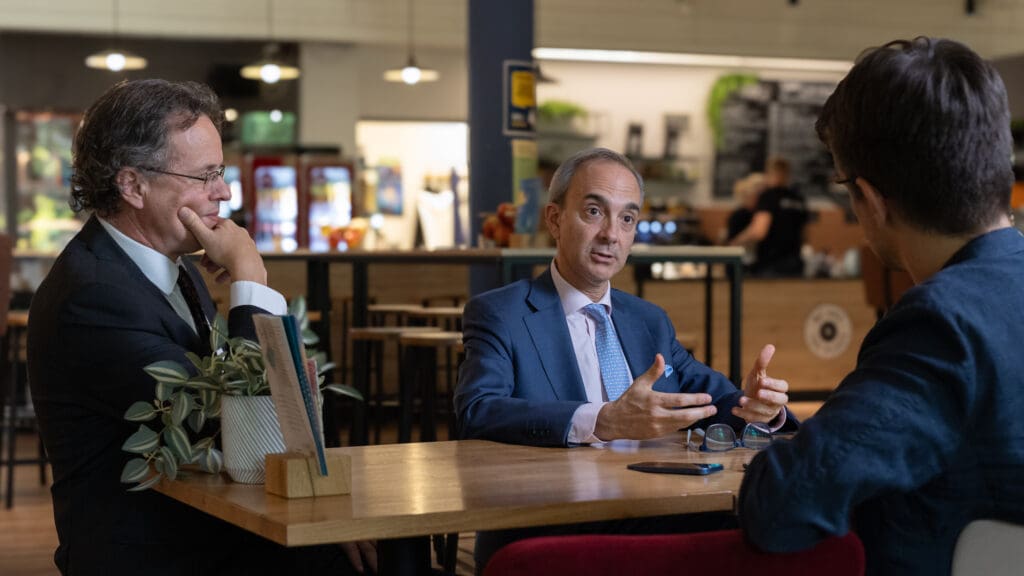
Allow me to reference your interview with La Nación once more. In response to one of the final questions about sexual education, you emphasized the importance of ‘pluralism.’ From a mainstream perspective, pluralism might be interpreted as ‘woke,’ but I assume you have a different approach. Could you please clarify your position?
Using the words of Pope Benedict XVI before his election, ‘woke’ ideology represents a dictatorship of relativism, not true pluralism. In sexual education, genuine pluralism respects human nature, acknowledging the complementary dimensions of men and women while recognizing that individuals may develop different personal choices. However,
it should not be mandatory to embrace the concept of fluid, performative sexuality, as praised by thinkers like Judith Butler.
This is a utopian and radical vision. Such sexual fluidity can lead to a form of enslavement within a technocratic system, ultimately resulting in what Foucault termed a ‘society of control.’ It’s paradoxical because Foucault’s critique, often perceived as targeting the Right, actually applies to the woke Left. The challenge in education is to acknowledge human nature and reality, while understanding that some people may choose differently according to their conscience. We should not allow this fluid ideology to become a new dogma in sexual education.
In Hungary, the governing parties have managed to shift the entire legal system towards a strongly conservative approach, incorporating provisions into the Fundamental Law such as ‘Hungary shall protect the institution of marriage as the union of one man and one woman’ and ‘The mother shall be a woman, the father shall be a man.’ With President Milei in office, do you see an opportunity to implement similar significant changes to ensure that your conservative principles are effectively reflected in the law?
In the National Congress, President Milei holds less than 20 per cent of the seats—a relatively small percentage. Despite this, there is a movement to pass a foundational law in Congress that would significantly impact the economy. If enacted, this law would be transformative, and we are close to securing a majority to support it. However, making similar progress in the cultural field will be much more challenging. We need to build a new majority, likely achievable after the next election. From what we understood today, it took Hungary 14 years to achieve decisive changes in cultural education. Similarly, we will need time to create a substantial cultural and political movement to bring about meaningful legal changes. For this, we need both a clear theoretical framework and a practical vision, as seen in Hungary, to effect legal transformation.

